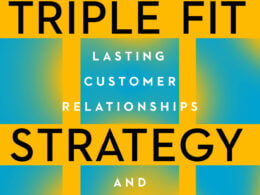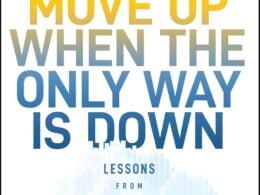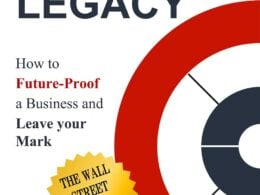This excerpt is adapted from “Seven Years on the Front Line: True Stories and Tough Lessons about a Small Business that You Won’t Learn in a Classroom” by Sarah Y. Tse ©2020 and is reproduced with permission from TSE Worldwide Press.
In all the stories in this book, I was dealing with two or three challenges simultaneously. There was no respite, no break, no time to regroup. It was one thing after another, many times at the same time. Here are some lessons I learned:
Love of money is the root of all evil
Money is how I ended up in a bad situation. More specifically, the love of money. Let’s not pretend that money isn’t critical for anyone who creates, grows, and runs a small business. If you don’t have or make money, you’re not going to be in business for very long: Running a business requires managing your money wisely.
But if your love of money is stronger than your love for people or stronger than your desire for respect earned from doing the right thing, then you will fail. Maybe not this quarter or this fiscal year — maybe not for decades to come — but eventually. As I learned in my dealings, money, greed, and pride bring out the worst in people. I was misled, lied to, cheated, deceived, degraded, and humiliated, all for the love of money.
Today, I pause every time I enter a new relationship with a client or supplier and ask myself: Am I treating this person fairly? Am I treating this person honorably? Am I treating this person in the way I want to be treated?
You will face more than one challenge at a time: Be prepared
We often hear people complain that it’s just one thing after another or when it rains, it pours. Multiple tough things may happen at the same time, even in a small business. You cannot become so consumed by one challenge that you stop paying attention to everything else.
Register your trademarks
When you invest in your company name and brand, you must file an application with the U.S. Patent and Trademark Office. Don’t leave your mark unprotected. The only way you retain the right to sue if someone starts using your logo or company name in the same industry is to have an official registration with the Trademark Office. The filing is inexpensive and easy to do. It cost me less than $300 to file my trademark. Of course there are also law firms that can help you file; their fees should not be that costly.
Read anything you sign
I understand how miniscule and long the print may be on a contract, but you must read and be sure you comprehend it. Find a lawyer you can trust who will explain it to you before you sign.
Get it in writing
No matter who you’re in business with, no matter how righteous or honest they appear, you need a solid contract. It’s not cynical to require a contract; it’s wise. A contract lays out all unspoken desires and expectations. No one is immune to greed or selfishness. No one.
Don’t be afraid to fight for justice
In the life of a small business, just like in general, there will be difficult decisions, decisions that don’t seem clear or black and white. There will be times when a decision looks like a great opportunity and will involve terrifying risk. Don’t be afraid. At those times, you will need counsel from wise colleagues and leaders, elders and mentors, and family and friends. You will need to lean on wisdom bigger than your ego and emotions, deeper than your circumstances, and stronger than the storms you will sail into.
To be independent of the fear, ego, emotions, circumstances, and storms, yet dependent on wisdom, is how to live a life that is positive and that perseveres.
Don’t ignore your gut feelings
Some people call it discernment: a sense of warning to which you’d better respond or figure out the reason behind. It is important to pay attention to all warning signs, both obvious and subtle.
Stand your ground and know your worth
Know your worth and where you stand. Never compromise your standards even if short on revenue. This will pay off in the long run. Focus on pursuing accounts and customers who respect and value you and who are willing to partner with you for the long haul.
No matter the size of the business, you can and must be selective with whom you choose to work, according to your company’s own standards. You don’t have to deal with the drama of someone: It’s not worth it.
It’s important to set those standards early on, when your business is still small. If you wait until a big opportunity comes along, it will be too late. Without establishing standards or principles, it is far too easy to compromise when “big money” is suddenly presented and you’re tempted to grab the money and worry about the principles later.
“Seven Years on the Front Line” is available now and can be purchased below via StartupNation.com.






